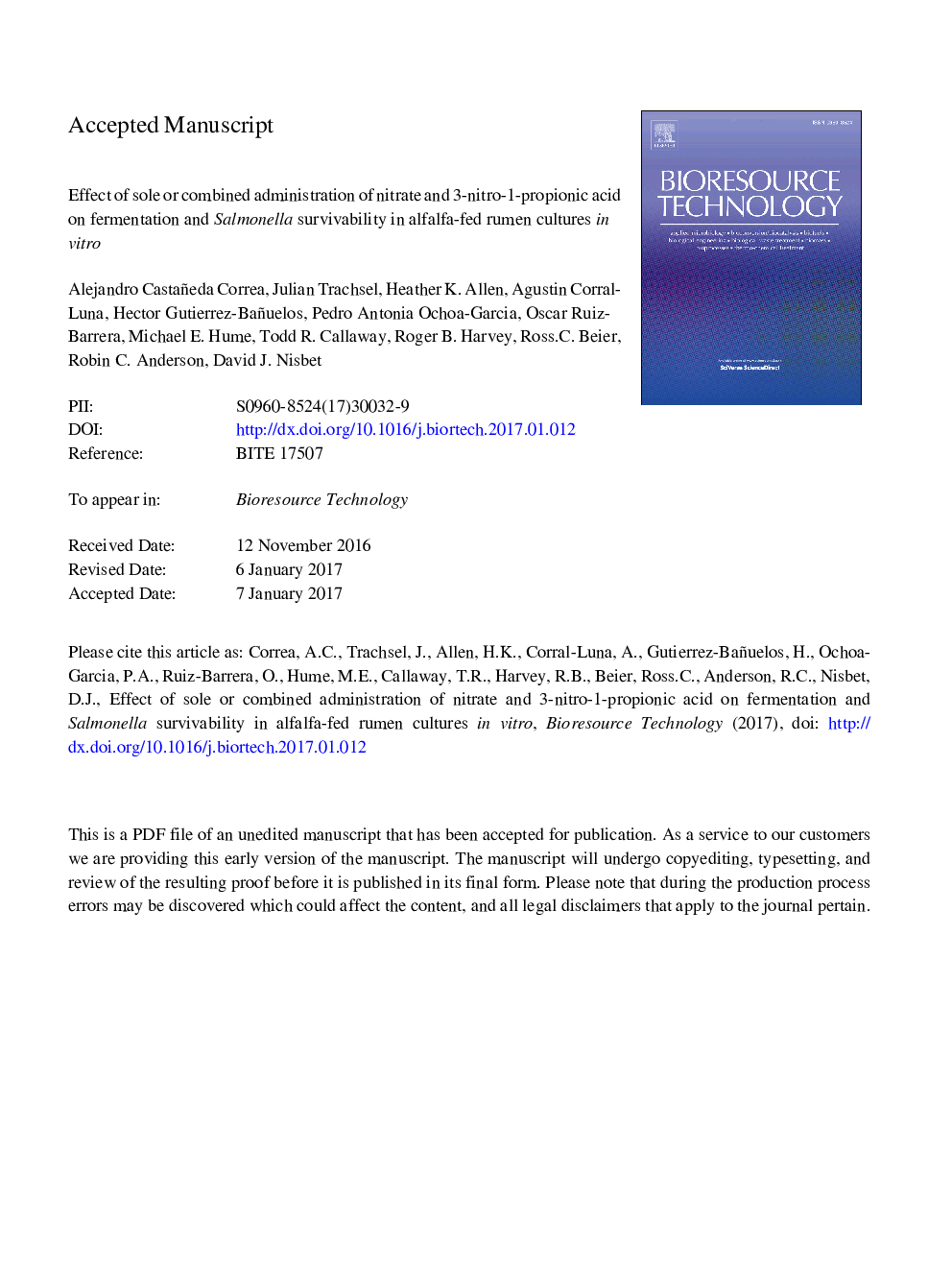| Article ID | Journal | Published Year | Pages | File Type |
|---|---|---|---|---|
| 4997619 | Bioresource Technology | 2017 | 34 Pages |
Abstract
Ruminal methanogenesis is a digestive inefficiency resulting in the loss of dietary energy consumed by the host and contributing to environmental methane emission. Nitrate is being investigated as a feed supplement to reduce rumen methane emissions but safety and efficacy concerns persist. To assess potential synergies of co-administering sub-toxic amounts of nitrate and 3-nitro-1-propionate (NPA) on fermentation and Salmonella survivability with an alfalfa-based diet, ruminal microbes were cultured with additions of 8 or 16Â mM nitrate, 4 or 12Â mM NPA or their combinations. All treatments decreased methanogenesis compared to untreated controls but volatile fatty acid production and fermentation of hexose were also decreased. Nitrate was converted to nitrite, which accumulated to levels inhibitory to digestion. Salmonella populations were enriched in nitrate only-treated cultures but not in cultures co- or solely treated with NPA. These results reveal a need for dose optimization to safely reduce methane production with forage-based diets.
Keywords
Related Topics
Physical Sciences and Engineering
Chemical Engineering
Process Chemistry and Technology
Authors
Alejandro Castañeda Correa, Julian Trachsel, Heather K. Allen, Agustin Corral-Luna, Hector Gutierrez-Bañuelos, Pedro Antonia Ochoa-Garcia, Oscar Ruiz-Barrera, Michael E. Hume, Todd R. Callaway, Roger B. Harvey, Ross C. Beier, Robin C. Anderson,
